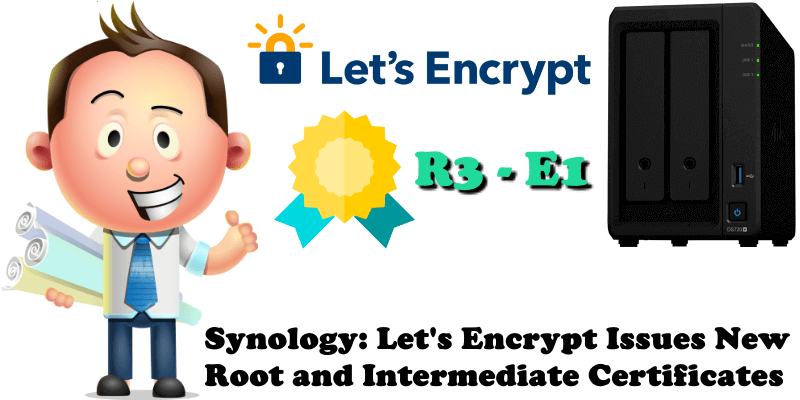
Some days ago Let’s Encrypt announced that the TLS certificates issued by the Let’s Encrypt certificate authority are using a new intermediate certificate. Let’s Encrypt will start using their new roots next year. Today Let’s Encrypt are using a variant of their “R3” certificate which is cross-signed by IdenTrust, rather than chaining back to their ISRG Root X1.
This is not related to the chain-switch coming up in January, and will not impact users on older operating systems. The R3 intermediate will still chain up to IdenTrust’s DST Root CA X3 by default (with an alternate chain up to ISRG Root X1 available, the same as today). Below is the Twitter announcement from Let’s Encrypt.
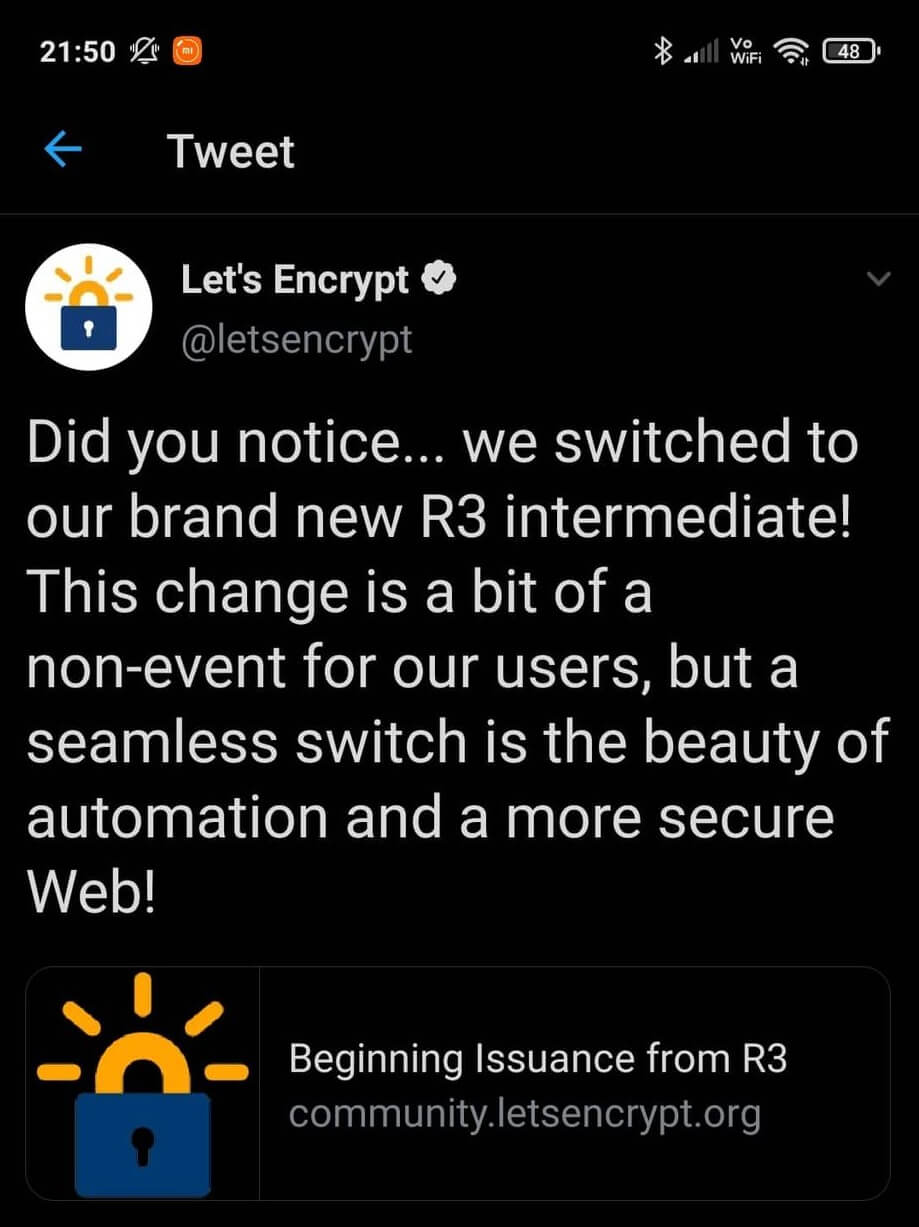
So if you try to renew your website or synology.me DDNS certificate from Let’s encrypt on your Synology NAS, the certificate will be issued by R3 instead of the Let’s Encrypt Authority X3. In January 2021 the certificate from Let’s Encrypt will be issued by E1 instead R3.
Note: This change should be a non-event for you and your site, and for Synology users who renew their own Let’s Encrypt certificates. So don’t panic if you notice your Let’s Encrypt certificate has been issued by R3 instead of the Let’s Encrypt Authority X3.
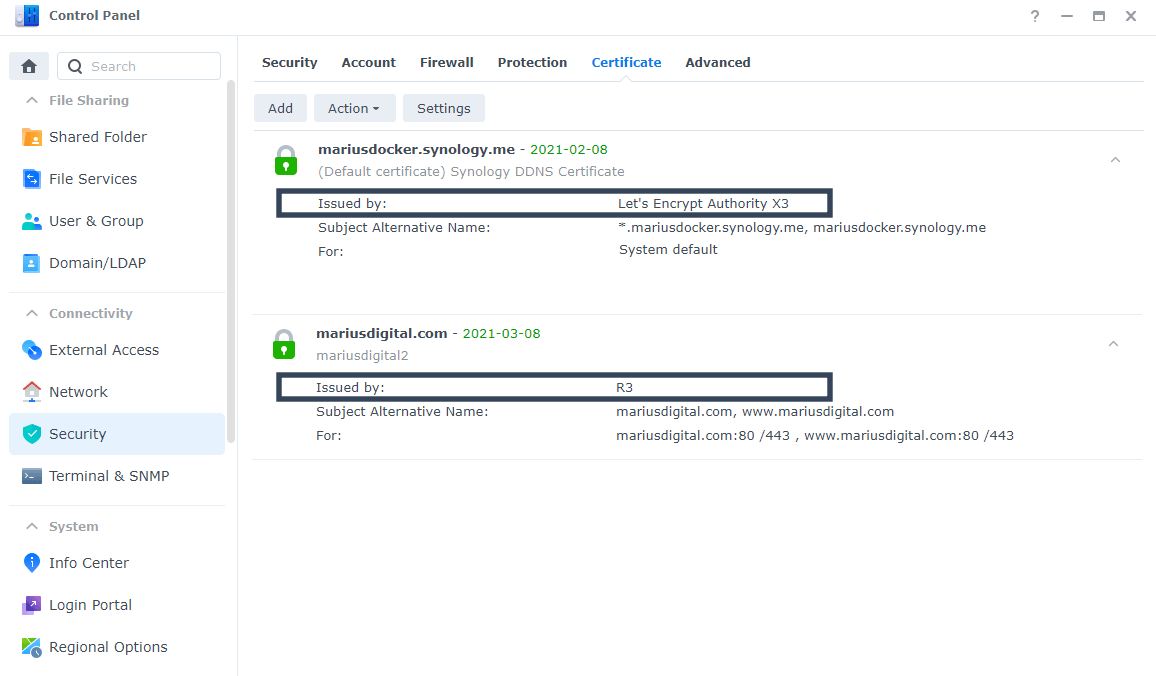
As you can see in the screenshot below mariushosting’s certificate is Issued by R3.
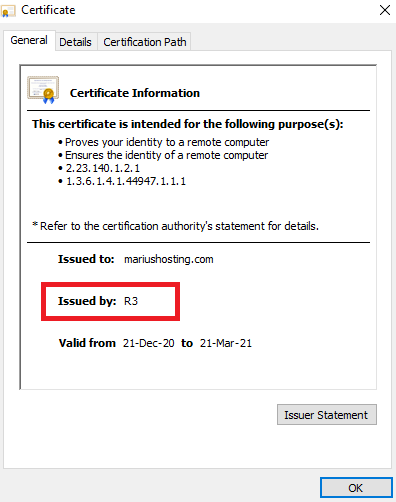
New Root CA certificates and matching Intermediate CA certificates will be using ECDSA keys instead of RSA Keys. ECDSA keys are smaller, faster and more secure than their RSA counterparts.
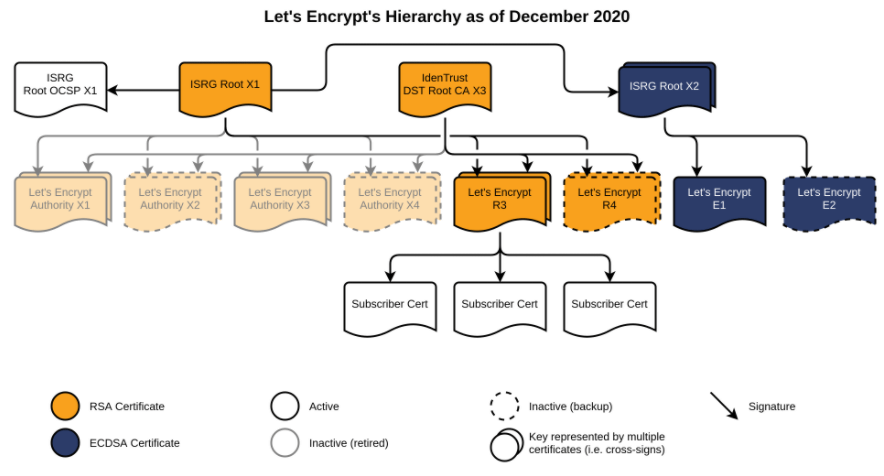
What is a root certificate? A certificate authority can issue multiple certificates in the form of a tree structure. A root certificate is the top-most certificate of the tree, the private key of which is used to “sign” other certificates.
What are the advantages of this change for Synology users? ECDSA public keys are faster than their predecessor. If you are running a website on your Synology NAS that uses a Let’s Encrypt certificate, you will notice increased speed when accessing your website. This change reduces the size of certificates and you can initiate a faster client/server connection. ECDSA public keys are smaller than their predecessor. ECDSA keys are smaller than RSA keys and smaller keys in the certificates means smaller certificates. A 2048-bit RSA key is 256 bytes in size compared to an ECDSA public key which is 48 bytes, so considerably smaller.
Note: Read more about the new root and intermediate certificate directly from Let’s encrypt.
This post was updated on Monday / December 21st, 2020 at 1:19 PM
